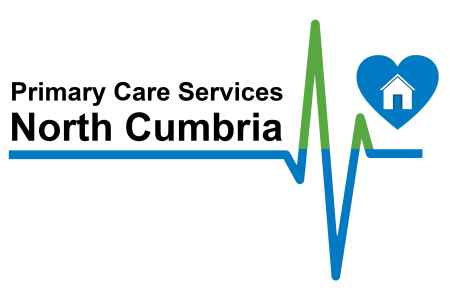GP Practices across North Cumbria to introduce changes to help improve patient access from August 2025
From August 2025, some of the GP practices across the North Cumbria NHS area will be introducing changes to how they handle certain healthcare requests, in a move designed to protect patient access and support the long-term sustainability of general practice.
The decision follows a significant and ongoing rise in appointment requests and clinical tasks made on behalf of other healthcare providers—particularly hospital and specialist teams. General practice teams are increasingly being asked to undertake work such as chasing up hospital test results, prescribing medication initiated in secondary care, completing referrals on behalf of consultants, and conducting blood tests or ECGs that were originally requested by hospital services.
While many of these tasks have historically been absorbed by general practice to support continuity of care, the volume of these requests has now reached a point where they account for an estimated 25–30% of GP daily workload. This has had a direct impact on the availability of appointments and access for patients needing core GP services.
Dr Robert Westgate, a Carlisle GP and Chair of the North Cumbria Local Medical Committee, said:
“We’ve seen a significant increase in work passed from other parts of the health system to GPs, including prescriptions, referrals and test follow-ups that fall outside the scope of our contracts. This is something we now need to address, not to pass on responsibility, but to ensure that general practice can remain safe, available and sustainable for the future.
These changes will ensure patients still receive the care they need—often more directly from the specialist service managing their condition. We will continue to work constructively with our colleagues across health and care settings to support patients appropriately.”
Patients are asked not to contact their GP practice about these changes. Practices will provide information directly to those affected and will continue to support patients in navigating the updated pathways.
As a result from August 2025, patients may be directed back to the hospital or specialist service responsible for their care, particularly where requests fall outside of the core, contracted responsibilities of GP practices. This change does not affect a wide range of enhanced services that general practices will continue to provide, such as DMARD monitoring under shared care agreements (e.g. methotrexate) , hormone injections (e.g. Zoladex), vaccinations and immunisations, NHS health checks, learning disability reviews, INR monitoring, minor injuries treatment, sexual health services and others.
The move follows the decision of some GP surgeries to serve notice on a local 'secondary care workload agreement', which had temporarily allowed general practice to support hospital services with specific tasks. Work is now underway with the NHS North East and North Cumbria Integrated Care Board (ICB), alongside North Cumbria Integrated Care NHS Foundation Trust (NCIC) and Cumbria, Northumberland, Tyne and Wear NHS Foundation Trust (CNTW), to ensure that appropriate alternative arrangements are in place from August 2025.
Tasks previously carried out under the agreement included ECG and physical health monitoring for people prescribed specialist mental health medication, pre-operative and post-operative blood test, post-operative wound care, chemotherapy-related blood testing, and blood monitoring for specialist biological therapies.
Frequently Asked Questions
GP practices have been doing a lot of work that should be arranged by hospital clinics — such as blood tests, prescriptions, and follow-ups. This work takes up a large part of their time, and it’s not funded. They are stepping back from these tasks so that they can focus on core general practice care and ensure patient safety.
Yes. You will still receive the care you need — but it may now come directly from the specialist clinic that’s managing your condition. The hospital team is responsible for organising tests, prescribing, and follow-ups linked to your specialist care.
Please contact the hospital team directly. They are responsible for arranging and managing this type of care. If you are unsure who to contact, your practice will help direct you to the right service.
We understand this can be frustrating. However, NHS guidance is clear: hospitals and specialist clinics must not shift responsibility for their care onto GP practices. Practices will be reminding them of this. If they ask you to contact your practice for something that’s their responsibility, please let your practice know — and they'll follow it up with them if needed.
The goal is to improve access for everyone by reducing the extra workload that has made it harder for patients to get timely appointments. These changes will help practices make more appointments available for general medical issues that should be managed by your GP.
Yes. Practices are still offering a wide range of services, including:
- Vaccinations and immunisations
- Long term conditions support
- NHS Health Checks
- Support for people with learning disabilities
- Hormone injections (e.g. Zoladex)
- Minor injuries, contraceptive services and sexual health
- Medication monitoring (e.g. methotrexate)
- INR (warfarin) monitoring and IUD (coil) fitting
You can contact your GP practice as usual for support with these and other standard GP services.
Please don’t worry. You can speak to one of the practice team if required, and they will help guide you. Practices are also working on a leaflet and online guide to help explain what care stays with the GP, and what should be arranged by specialists.




